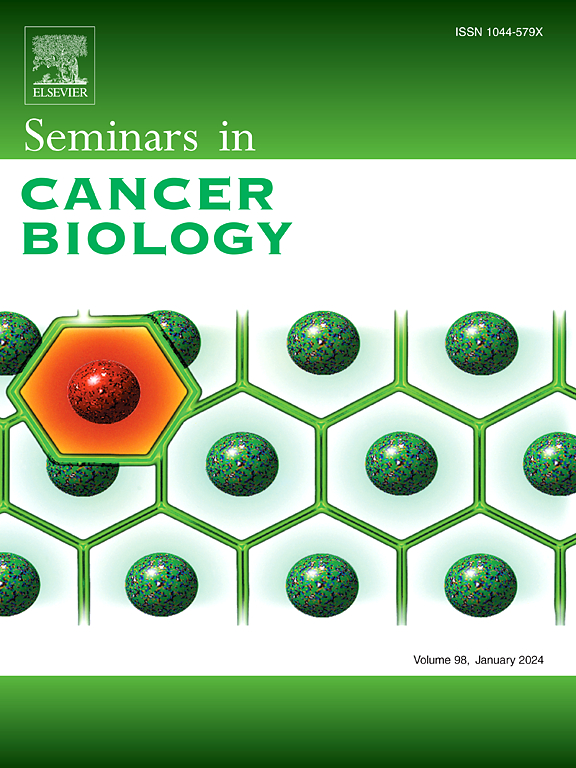The impact of the tumor microenvironment in the dual burden of obesity-cancer link
IF 12.1
1区 医学
Q1 ONCOLOGY
引用次数: 0
Abstract
Obesity induces systemic perturbations of tissue homeostasis, leading to dyslipidemia, insulin resistance and chronic state of inflammation. Evidence from clinical and preclinical studies links excess of adiposity with increased cancer incidence and suggests that chronic inflammation may contribute to increased cancer risk in obese patients. Over the last decades of obesity research, multifaced and complicated effects of abnormal or excessive expansion of Adipose Tissue have been uncovered. In particular, it is widely described how obesity can exacerbate the tumorigenesis for instance by fueling soluble signals and adipokines and by enhancing tissue inflammation and altering the hormonal balance. Less is known about the paracrine effects of the cancer-associated adipocytes on the tumor cells and still poorly explored is the reciprocal communication between cancer cells and the adipose component of the tumor microenvironment (TME). In this review, we will address the mechanisms by which the peritumoral Adipose Tissue can influence the dynamics of tumoral cells. We will discuss how obesity-induced changes in the tumor microenvironment may enhance tumor growth and aggressive characteristics leading to increased invasiveness and metastatic progression of cancer that leads to a worsen cancer survival in obese subjects. We conclude that targeting the peritumoral adipose component of the TME would be a therapeutic option to prevent cancer development.
求助全文
约1分钟内获得全文
求助全文
来源期刊

Seminars in cancer biology
医学-肿瘤学
CiteScore
26.80
自引率
4.10%
发文量
347
审稿时长
15.1 weeks
期刊介绍:
Seminars in Cancer Biology (YSCBI) is a specialized review journal that focuses on the field of molecular oncology. Its primary objective is to keep scientists up-to-date with the latest developments in this field.
The journal adopts a thematic approach, dedicating each issue to an important topic of interest to cancer biologists. These topics cover a range of research areas, including the underlying genetic and molecular causes of cellular transformation and cancer, as well as the molecular basis of potential therapies.
To ensure the highest quality and expertise, every issue is supervised by a guest editor or editors who are internationally recognized experts in the respective field. Each issue features approximately eight to twelve authoritative invited reviews that cover various aspects of the chosen subject area.
The ultimate goal of each issue of YSCBI is to offer a cohesive, easily comprehensible, and engaging overview of the selected topic. The journal strives to provide scientists with a coordinated and lively examination of the latest developments in the field of molecular oncology.
 求助内容:
求助内容: 应助结果提醒方式:
应助结果提醒方式:


